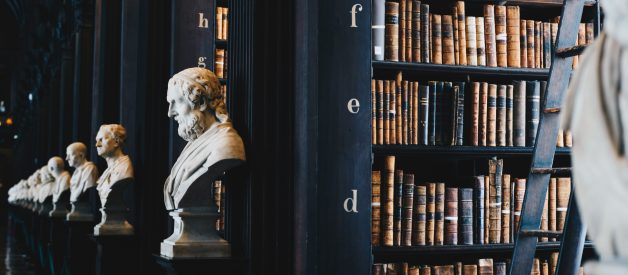 Photo by Giammarco Boscaro on Unsplash
Photo by Giammarco Boscaro on Unsplash
?Always listen and be willing to learn. Take care of yourself and others. Talk to new people and have quality conversations. Go to different places and always go in style?.
This is my personal philosophy.
You may be wondering, ?why do you have a personal philosophy?? or ?what is a personal philosophy?? And these are valid questions.
In fact, they are the same questions I had when I first heard the term, personal philosophy.
A personal philosophy is simply the most basic beliefs, concepts and attitudes of an individual.
If you think about it most of us belong to some sort of religious group or organization that has one ? whether you know it or not.
From Christianity to the Girls Scouts, every entity you could think of has some sort of credo they live by or guiding principles that provide direction as to how they should behave.
A personal philosophy works the same way.
A little unknown secret: It?s one of the most essential intstraments to our existence.
Still, most of us don?t have one.
Why is having personal philosophy important?
A personal philosophy defines who you are and what you stand for.
It?s your identity.
Think of great humanitarians. Mother Teresa, Gandhi and Martin Luther King all had doctrines by which they lived.
These beliefs gave them direction and purpose.
Everything they did was because of these values.
Too many of us settle for lives without any sense of purpose and thus lack fulfillment.
We live aimlessly; day to day without any intention.
But this shouldn?t be.
With a personal philosophy, we will be able to live with purpose and create daily intentions that serve as a road-map for life.
If you were to plan a trip and left the house without directions, you wouldn?t reach your destination.
A personal philosophy is your directions. Use it to reach the destination of fulfillment.
How to create a personal philosophy
Non-negotiables. These are your essential values you won?t compromise; top priorities.
What do you value most?
Family? Health? Learning? Mindfulness?
List them.
Not all of these will make up your personal philosophy.
Mindset.The way we think and how we perceive things plays a big role in who we are.
Each mindset is different. It?s not that one is right or wrong we just have different views of the world.
The key thing is not to try and adopt the mindset of someone you?re not. We would all love to have the Mamba Mentality of Kobe Bryant, the empathetic and good-natured spirit of Oprah or the wisdom of Warren Buffet but the truth is most of us don?t.
Be yourself.
Useful tip: the Myers Briggs test is a great way to figure out your thought process and provides great assessment of your personality.
My personal Philosophy: A Case Study
When I first started, I have to admit, I had a little trouble.
I value a lot of things.
My indecision led me on a Google search and take inspiration from successful people who have personal philosophies ? it really helped me focus on core values.
Non-negotiables
Faith: As a Christian, the aim is to be Christ-like; to live my life as Christ did.
Family. Nothing on this earth comes before the people I care about the most.
Health. I see too many seniors struggling to walk or even get up. I don?t want that to be me.
Sports: I?m addicted to basketball what can I say.
Freedom: No, I?m not talking emancipation proclamation. I?m talking career autonomy; entrepreneurship. Full control over when I make money and how much. I don?t do cubicles.
Laughter: I really believe that laughter is the best medicine.
Helping Others: We shouldn?t only be worried about ourselves. The more people we help the better the world will be for it.
Learning: Education doesn?t just take place in the classroom but in every aspect of life. The best way to learn is by listening.
Disclaimer: Not everything made the cut.
Mindset
I truly enjoy talking to people ? even though most of the conversations are 70% listening and 30% talking.
We learn most about others by asking questions and listening to what they have to say.
I try to have as many intellectual conversations as I possibly can because that is when we I get to know the inner workings of another person.
When I was interviewing some of my friends for my blog I realized I didn?t understand them as well as I thought.
By simply asking questions I was able to truly understand their thought processes and how these processes came about.
I noticed that placing as much value on other?s opinions as that of my own has really helped me to see the world from the perspective of others.
The result; coming up with a personal philosophy that emphasises learning, values other people and exploration.
Thanks for reading?..


